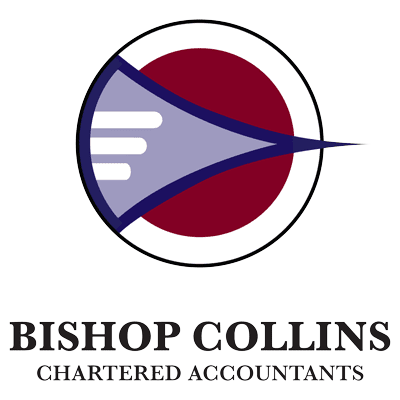
Glenn Harris
Director
Ignore Land Tax at Your Peril
Land tax is the forgotten cousin of taxes, most people don’t think about it until it’s brought to their attention. However, you will neglect this forgotten cousin at your peril. In the 2020-21 year the NSW Government undertook a significant compliance program in relation to land tax with the following results:
- Investigated 3,877 landholders who did not pay land tax surcharge and identified $69.3 million in additional land tax surcharge.
- Investigated 23,374 landholders who were not assessed for land tax or had incorrect exemptions applied, and identified $244.7 million in additional land tax: and
- Investigated over 2,013 customers that were not assessed for parking space levy or had incorrect exemptions applied and identified $12.3 million in additional Parking Space Levy.
The NSW tax system relies upon voluntary registration and self-assessment to pay the correct amount of land tax. The NSW Government has an active compliance program to ensure the correct amount and other duties are paid, including information exchanges with the ATO.
What is Land Tax?
Land Tax is an annual tax levied each year on 31 December which is based on the value of the land you own or jointly own. The following types of property will be subject to land tax regardless of whether income is earned from the land:
- Vacant land, including rural land
- Land where a house, residential unit, or flat has been built
- A holiday home
- An investment property or properties
- Company title units
- Residential, commercial, or industrial units, including car spaces
- Commercial properties, including factories, shops, and warehouses
- Land leased from state or local government
What Land is Exempt?
Generally, the following properties may be exempt:
|
|
|
|
|
|
|
|
The most used exemption is the Principal Place of Residence. To qualify for this exemption the following must apply:
- Only claim one exemption per family.
- Have continuously used and occupied the property solely for residential purposes before the taxing date¹.
- Have used the land for residential purposes.
- The exemption does not apply to land owned partly or wholly by a company or held in a special trust.
Note 1: It’s important to note if you move away from your principal place of residence you may be able to continue to claim the exemption for a period of up to 6 years. To qualify for this, you must:
- Have lived there continuously for at least six months before moving away.
- Not own another principal place of residence.
- Only earn income from the property to cover basic property expenses, such as rates, water, and other amenities.
- Not lease out your property for longer than six months in a calendar year – If you lease out your property for longer than six months, you must pay land tax in the following year, unless you move back into the home before 31 December.
How Do I Register for Land Tax?
You are required to register if the value of all the taxable land you own exceeds the land tax threshold. This can be done electronically via the NSW government website at: https://www.apps09.revenue.nsw.gov.au/customer_service/forms/landtax.
Remember the obligation is on you to register when you acquire a taxable property. If you are liable and fail to register or lodge a return you may be charged interest and penalties for failing to pay the correct amount.
How is Land Tax Calculated?
It’s calculated on the total taxable value of all the taxable land you own, on 31 December each year, above the land tax threshold. If the total taxable value of all the property you own does not exceed the threshold you will not be liable to pay that year.
The thresholds change each year and for the 2021 tax year they are:
| Threshold | Value | Tax Calculation |
| General threshold | $755,000 | $100 plus 1.6 per cent of land value above the threshold, up to the premium threshold. |
| Premium threshold | $4,616,00 | $61,876 plus two per cent of land value above the threshold. |
Land tax is applied for the full year following the taxing date of 31 December, and no pro-rata calculation applies. Land is valued on the 1st of July every year by the Valuer General of NSW.
Joint Ownership of Property
There are some special rules which apply to joint owners of the property:
| Individuals | Joint Owners |
| You are assessed based on the total land value of all your interests in land, whether you own them as an individual or as a joint owner.
For example, if you have a 50 per cent interest in jointly owned land, your individual tax assessment will include 50 per cent of that land plus 100 per cent of any land you own individually. You will receive separate assessment notices for any jointly owned land. |
If you own land with one or more other owners, you are considered a joint owner of land. You will be assessed on jointly owned land as if it were owned by one person. The partnership receives the benefit of the one threshold.
As a joint owner, you will be assessed as follows:
Where tax is paid by the joint owners, each joint owner is entitled to a secondary deduction in their separate assessments to avoid double taxation. |
Is land tax in NSW tax deductible?
Current laws and legislation means land tax may or may not be deductible,dependant on your personal circumstances. Whenever a property is purchased,stamp duty needs to be paid. Stamp duty is non-deductable, being added to the capital gaiuns tax cost base of the property. Owner occupiers cannot benefit from deductible land tax in NSW, but investors can.
Do I have to pay land tax in NSW?
If you own, or jointly own land where a house or other residential unit or flat has been built, then you will have to pay land tax. This is the case regardless of whether the property is built on vacant or rural land. However, to be liable for land tax in NSW, property owners must exceed the threshold which currently stands at $822,000 as of 2022.
How much land tax do you pay in NSW?
As of 2022, the amount of land tax property owners have to pay is $100 plus 1.6 percent of the land value above the threshold, which is currently $822,000, up to the premium rate. Properties that fall into the premium rate band threshold of $5,026,000 will pay $67,364 plus 2 percent of the land value that goes beyond the threshold.
What Does The Future Hold For Land Tax?
Late last year in the 2020-21 state budget the treasurer announced tax reform plans to make the transition from stamp duty on property purchases and land tax to an annual smaller property tax payment. Acting on various recommendations coming out of the Thodey financial relations review, Mr. Perrottet would like to move away from stamp duty to an annual property tax. “When it comes to our economy and the biggest impediment on economic growth, the number one area for states are taxes,” Mr Perrottet said. The full details of the NSW tax proposal plan can be read here: https://www.nsw.gov.au/initiative/property-tax-reform.


